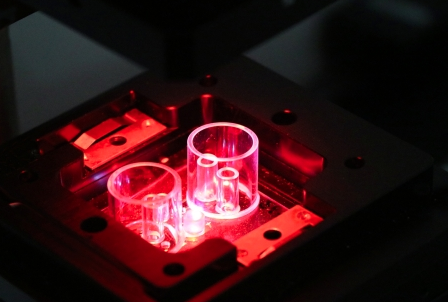
Source credit: businesswire
Precision oncology company Lucence has announced a partnership with Waseda University in Japan to develop a novel high-speed liquid biopsy laser-based imaging platform for early cancer detection.
The technology captures thousands of high-resolution individual images of circulating tumour cells and clusters from a blood sample with potential applications in early cancer detection and disease monitoring. Lucence plans to commercialise this liquid biopsy platform from their CLIA-licensed laboratory in Palo Alto.
“More than 50 per cent of cancer diagnoses happen in late stages of the disease, when treatment options are limited. Early cancer detection is critical to reducing mortality,” says Dr Tan Min-Han, Founding CEO and Medical Director, Lucence. “We are excited to combine our discovery of circulating tumour-vessel cell clusters in early cancers with Waseda University’s engineering expertise to build an early cancer detection technology platform.”
“Identifying circulating tumour cells using conventional biomarkers often lead to false-negative results,” says Professor Kenji Yasuda, Waseda University. “Together with Lucence, we visualise the end-product to be an easy-to-use diagnostic platform for rapid and automated detection of circulating tumour cells and cell clusters in liquid biopsies.”
Dr Tan led the landmark discovery of circulating tumour-vessel cell clusters in 2016 when he was at the Agency of Science, Technology and Research (A*STAR) in Singapore. These cell clusters are found in multiple tumour types, and can serve as a unique biomarker for early cancer detection. Through this partnership with Waseda University to develop a high-speed microfluidic imaging platform, Lucence will build a circulating cell atlas, where circulating tumour cells and cell clusters can be analysed with proprietary deep learning algorithms for further insights on cancer.
Lucence has secured exclusive technology licenses from Waseda University and A*STAR to support the development of this diagnostic platform for cancer screening and monitoring.
This collaboration enables the development of a new generation of ultra-sensitive cancer screening tests profiling both circulating tumour DNA and cells, projected to be available in the US in 2022.




